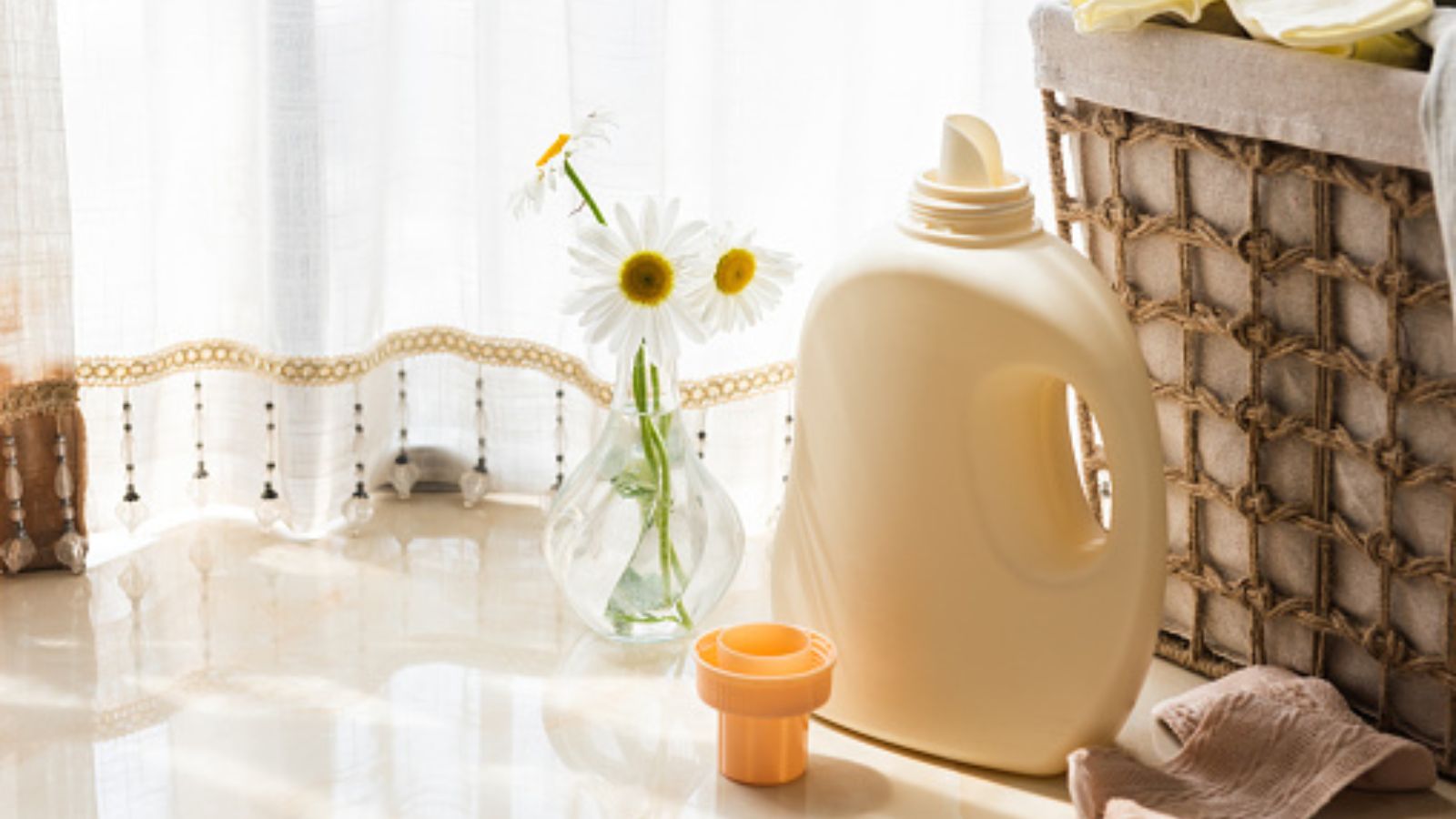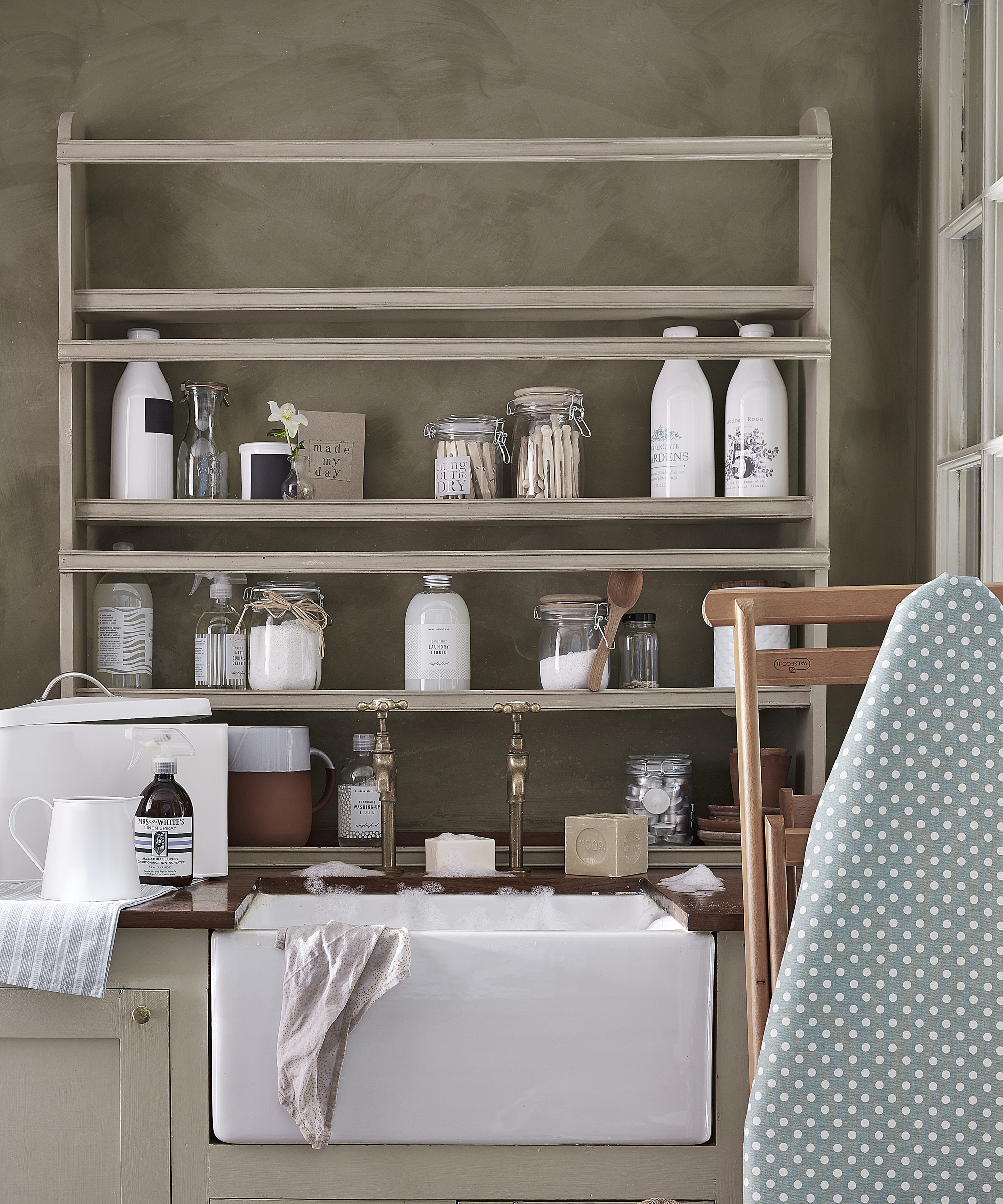Is hot or cold water better for stain removal? A fabric care scientist explains all
Getting this one thing right can make or break stain removal, experts warn


There are usually two approaches people take when it comes to stain removal. The first is to get the stain soaking immediately, taking action as soon as the offender hits the fabric. The other is to let the stain sit and hope that you remember to tackle it when laundry day rolls around.
No matter how quickly or slowly you act, your stain removal hopes might be dashed if you get one vital element wrong, however, experts warn. That being whether you go in with hot or cold water.
So, is hot or cold water better for stain removal? We asked the best laundry experts and fabric care scientists for their thoughts on this golden rule of stain removal.
Is hot or cold water better for stain removal?
While it is useful to set up a stain station to help you remove stains on clothes, linens, and upholstery quickly and efficiently if you grab the wrong temperature water, you might be putting yourself at a disadvantage, warns Kim Romine, P&G Tide scientist. While it might seem counter-intuitive, cold water is better for stains than hot, she reveals:

‘I recommend washing your garments in cold water in a high-quality detergent,’ she says. ‘From a scientific perspective, using warmer wash temperatures can help in removing stains. However, it's important to note that warm water can be damaging to a garment. It also consumes more energy, resulting in higher costs for your household and greater environmental impact. Washing on cold is one of the easiest ways to cut energy bills. For some stains, like blood, washing in warm or hot water can actually set them in more than washing in cold.
‘Using a high-quality detergent like Tide, at Walmart, you can get a powerful, clean, and effective stain removal in cold water,’ she explains. ‘These products are uniquely formulated to deliver a great clean in cold water, so you can be confident in your level of cleaning, regardless of what temperature you choose.
It is good to remember that ‘stain removal is very complex, and some stains can be tougher than others,’ Kim adds. ‘You should always launder your garment according to the laundry symbols on the care label.'
Design expertise in your inbox – from inspiring decorating ideas and beautiful celebrity homes to practical gardening advice and shopping round-ups.
This is why putting the pre-rinse cycle to good use when stain busting will make the job a lot easier. It uses cool water to soften the stain, and also allows for cleaner water to be used in the main cycle.
The exception to the rule

While Daniel Feliciano, co-founder, and CEO of Clotheslyne largely agrees, he explains that there is one exception to the cold water rule:
‘Cold water is better for most stains. Common stains, such as protein-based and food and beverage stains, require cold water to wash. This prevents the stains from setting into the garment and is gentle on delicate fabrics.’ Washing clothes in cold water also has the added benefit of preventing shrinking and color fading, ensuring your clothes and linens last and always look their best.
‘However, any greasy stains might benefit from a slightly higher temperature to help break down the fat molecules, he warns. ‘Hot water is better for oily, greasy, or mud stains. For example, getting rid of coffee stains, and cleaning make-up stains, lotions, gum, and grass markings. The hot water breaks down and dissolves substances more effectively.’
Using water with stain removers

No matter what water temperature you use, water alone will often not be enough to remove the stain, continues Ocean Van, laundry expert and owner of Coco Laundry.
You will need to presoak the stained item for around 30 minutes or up to overnight in a solution of water and a suitable stain remover, she says. The stain remover you use will depend on the type of stain:
- ‘Oxygen Bleach: Products like OxiClean Versatile Stain Remover Powder, at Walmart, are great for general stain removal.
- Chlorine Bleach: Effective for whites but can damage colored fabrics.
- Enzyme Cleaners: Excellent for protein-based stains.
‘After soaking, rinse the item with cold water to remove loosened stain particles and residue before washing as normal,’ Ocean continues. ‘Then, before drying, inspect the garment,’ she advises. ‘If the stain persists, repeat the pre-treatment and washing steps. Drying the garment can set the stain permanently. If unsure, air dry the item to avoid setting any residual stain with heat from the dryer.’
FAQs
Does boiling water remove stains?
Boiling water might remove some stains, but it will often damage the garment or linen in the process, meaning it is not a good approach. It is better to use a dedicated stain remover or laundry detergent in warm or cool water, depending on the type of stain, and leave the garment to soak overnight before laundering as usual. If the stain persists, repeat the process.
What stains are the hardest to remove?
More often than not, greasy or oily stains are the hardest to remove. This is because oils are not water soluble, meaning running them through the washing machine on a normal cycle is unlikely to lift them from the fibers. This is why using warm water with a dedicated stain remover is your best bet for restoring clothes to near-new.
You cannot go wrong with stain removal and fabric care so long as you follow the instructions on the care label, reminds Kim Romine, P&G Tide scientist. ‘ If the care label recommends hot water for washing the item, you may want to choose it in cases where the item has an extreme amount of soil or staining on it. Do not choose hot water if you have any concerns about the item shrinking or fading.'

Chiana has been at Homes & Gardens for two years and is our resident 'queen' of non-toxic living. She spends most of her time producing content for the Solved section of the website, helping readers get the most out of their homes through clever decluttering, cleaning, and tidying tips. She was named one of Fixr's top home improvement journalists in 2024.